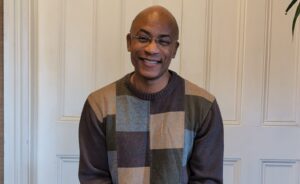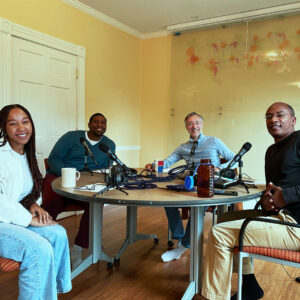I have a deep and fanatical appreciation for mythology, fairy tales, folktales, and fables. I consumed them endlessly and learned to spot the patterns between these stories. Who are the characters and what are they trying to teach me? What is the moral, the lesson? When I read these stories to my students, I enjoy hearty discussions on right and wrong with children as young as Kindergarten.
Lady Meng Po is a benevolent being who lives and serves in the 10th circle of the Chinese Afterlife, ie Hell. In these old folk stories, often merged with Buddhism, everyone who dies goes to Hell to be punished in accordance to whatever Karma they accrued in that life. Your sentence could be very, very long depending on how much harm you’ve caused when you were alive. Eventually, your term is completed and you are sent to Lady Meng Po’s realm where she gives you Amnesia Tea to forget your past life and your torment in Hell, so that you are born pure in whatever form would best teach you the lessons you need to learn. Often, your Karma dictates what you will be born as next. You do this cycle over and over and over.
I am Vietnamese and Black, born in Vietnam. My Grandfather is unknown to me, but is/was an American soldier. I was born unique, as we all were. But in elementary school, I became fascinated by Chinese folktales about Hell and Lady Meng Po, and there was no one to talk to about this. I became enchanted by what my past life was like to have had to endure such a cruel childhood. And I wondered what it would be like to forget the life I had now in order to live something better.
I learned at a very young age that I was different from my elementary school friends. Those differences didn’t stop me from trying to make friends, but it didn’t help me either. I learned to stop wearing any of my beautiful traditional dresses to school, I learned to say no when people ask me to perform my native language for the entertainment of others, and most importantly, I learned to stop bringing in lunch that my mother made. Being Vietnamese meant that we had rice, noodles, spring rolls, pho with tripe, rice porridge, and black sesame pudding on the menu for big celebrations and leftovers. Things have changed a little, but the trauma of lunchtime humiliation has made it difficult for me to share my culture with others. I made myself bland to assimilate and I made friendships that did not last because I wasn’t authentic to anyone.
When I transitioned from elementary school to middle school, I let myself have a taste of a different life. I went from trying to blend in and hiding as much of my Asian background as possible, to standing out. I made friends who had interests that I enjoyed instead of pretending to like something since other people liked it. I remembered feeling as though I was in my body finally, after so long of floating around it, disassociating.
When I tell people that I love working with middle school students, I normally get responses like, “you’re a saint!” Truthfully, I love working with them because seeing them learn to balance belonging and uniqueness reminds me of my own internal battle. To be different and to be the same.
I found a Lady Meng Po story I wrote in this transitional period of self-discovery. I won’t let anyone read it, but I’ve repurposed a section that I’m very proud to have thought about as an 11 year old. You can read this remastered excerpt below.
*****
“What is it like to be reborn?” You asked in the way only a bit of spark can ask.
It is like focusing on light when your eyelids are closed, the way it shifts, and trembles. You are conscious, aware, and there is a prickle of fear that you are born with. Fear of change, fear of the unknown. This is important, it is the key to your survival.
To be afraid is to be careful. To be afraid is to be critical. Fear is multifaceted. Balance it with courage.
You are not the only one. There are others, conscious and trembling with life, too. You are the same as all the others. This will help you feel belonging. You are different from all the others. This will help you feel special. Being alone and being together each have their purpose and their time in a single life cycle.




